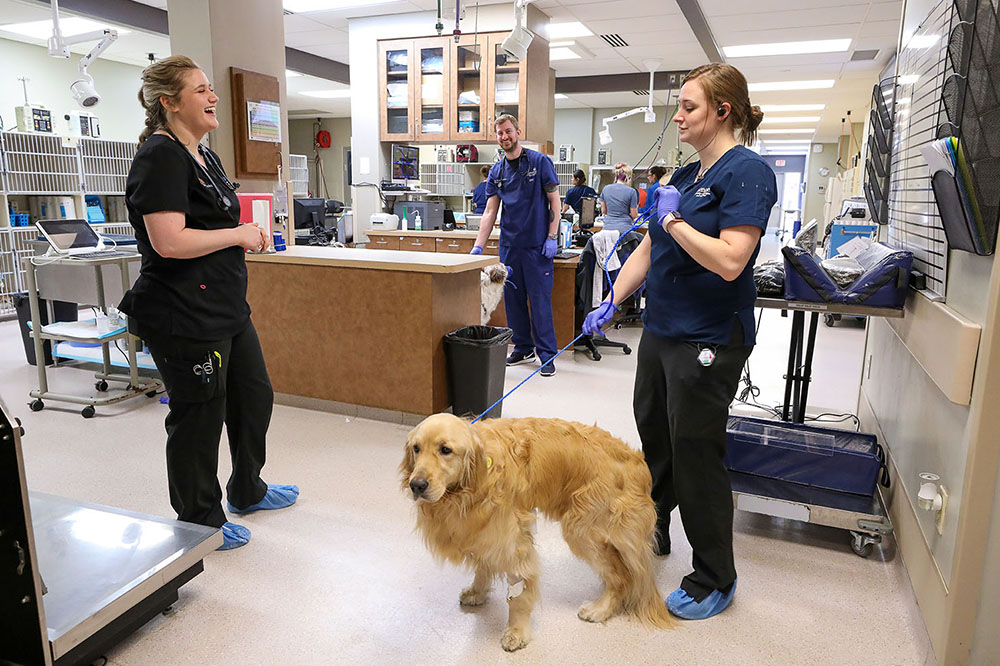Becoming a veterinary technician (vet tech) is a rewarding career path for those passionate about animal care and medicine. If you’re considering this profession, you might wonder: How long does it take to become a vet tech? Let’s explore the journey to becoming a skilled veterinary technician.
1. Introduction to Becoming a Vet Tech
A vet tech www.german-seo.com/ plays a crucial role in veterinary clinics, assisting veterinarians in various tasks related to animal care, surgery, and medical procedures. They are responsible for helping with exams, administering medications, collecting samples, and educating pet owners on proper animal care.
2. Understanding the Role of a Vet Tech
Vet techs work alongside veterinarians, providing essential support in animal hospitals, clinics, research facilities, and shelters. Their duties encompass a wide range of responsibilities, including laboratory work, radiography, anesthesia monitoring, and client communication.
3. Education and Training Required
The journey to becoming a vet tech begins with a solid educational foundation.
High School Education
Most vet tech programs require applicants to have a high school diploma or equivalent. Taking science courses such as biology, chemistry, and anatomy can provide a solid background for future studies.
Associate’s Degree Programs
The most common path to becoming a vet tech is earning an associate’s degree in veterinary technology from an accredited program. These programs typically take two to three years to complete.
Veterinary Technology Programs
Once enrolled, students undergo rigorous coursework and hands-on training in areas such as animal anatomy, pharmacology, surgical nursing, and veterinary practice management.
4. Licensing and Certification
After completing their education, aspiring vet techs must obtain state licensure or certification, which typically involves passing the Veterinary Technician National Examination (VTNE). Additional requirements may vary by state.
5. Gain Practical Experience Through Internships
Many vet tech programs include internships or externships, allowing students to gain valuable real-world experience under the supervision of experienced professionals. These practical experiences are invaluable for honing clinical skills and building confidence.
6. Skills Required to Excel as a Vet Tech
To excel in this profession, vet techs must possess a diverse set of skills.
Animal Handling and Restraint
Vet techs must be proficient in handling animals of all sizes and temperaments safely. They must also be skilled in restraining animals during examinations and procedures.
Medical Knowledge
A solid understanding of veterinary medicine, including anatomy, physiology, and common medical conditions, is essential for providing quality care to animals.
Communication Skills
Effective communication skills are crucial for interacting with both pet owners and fellow veterinary professionals. Vet techs must be able to convey medical information clearly and compassionately.
7. Job Prospects and Career Outlook
The demand for vet techs is expected to grow in the coming years, driven by the increasing need for veterinary services and pet care. Job opportunities are available in various settings, including private practices, emergency clinics, zoos, and research laboratories.
8. Advancement Opportunities
With experience and additional education, vet techs can pursue advancement opportunities such as specializing in areas like anesthesia, dentistry, or emergency care. Some may also choose to pursue further education to become veterinary technologists or even veterinarians.
9. Salary Expectations
The salary of a vet tech can vary depending on factors such as location, experience, and specialty. However, according to the Bureau of Labor Statistics, the median annual wage for vet techs was $36,260 in May 2020.
10. Challenges Faced in the Field
While rewarding, a career as a vet tech can also present challenges such as emotional stress, long hours, and physical demands. However, the fulfillment of helping animals and making a difference in their lives often outweighs these challenges.
11. Importance of Continuing Education
To stay current with advancements in veterinary medicine and maintain licensure, vet techs must engage in ongoing continuing education. This ensures they remain knowledgeable about the latest treatments, technologies, and best practices in animal care.
12. Personal Satisfaction in the Profession
Despite the challenges, many vet techs find immense satisfaction in their work, knowing they are making a positive impact on the health and well-being of animals. The bond formed with both patients and their owners can be incredibly rewarding.
13. FAQs About Becoming a Vet Tech
1. How long does it take to complete a vet tech program? Most vet tech programs take two to three years to complete, including both coursework and practical training.
2. Do I need to be licensed to work as a vet tech? Yes, most states require vet techs to be licensed or certified. This typically involves passing the VTNE exam.
3. Can I specialize in a particular area as a vet tech? Yes, with additional education and experience, vet techs can specialize in areas such as dentistry, anesthesia, or emergency care.
4. What is the job outlook for vet techs? The demand for vet techs is expected to grow, with job prospects projected to be favorable in the coming years.
5. What qualities make a successful vet tech? Successful vet techs possess a combination of compassion for animals, strong communication skills, and a solid understanding of veterinary medicine.
14. Conclusion
Becoming a vet tech requires dedication, education, and a passion for animal care. While the journey may have its challenges, the rewards of making a difference in the lives of animals and their owners are immeasurable.




